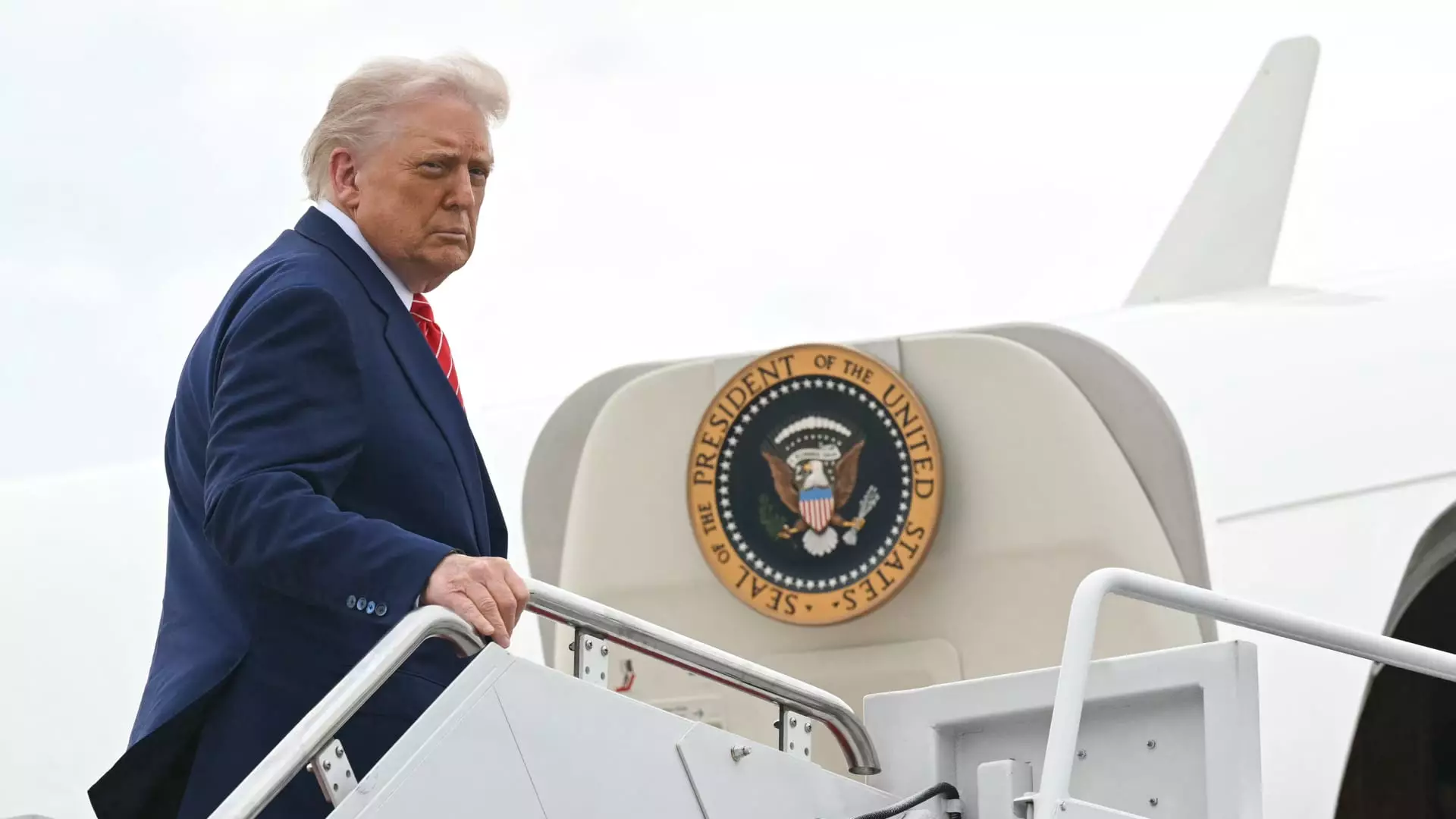The complications surrounding President Donald Trump’s tariffs are like a well-crafted legal drama, with intrigue, suspense, and a cast of characters who seem to be operating on shifting sands. When Commerce Secretary Howard Lutnick confidently declared that “tariffs are not going away,” one cannot help but wonder whether this is a show of genuine conviction or a thin veneer of bravado masking an imminent crisis. The truth is that the legal hurdles are mounting as a federal court has recently ruled that Trump has exceeded his constitutional authority. The decision reverberates ominously through an administration that derived its economic strategy from the promise of a robust trade war.
In this high-stakes drama, a federal appellate court has stepped in to grant the Trump administration a temporary reprieve while the case lingers, teetering dangerously close to appeals that may reach the Supreme Court. What strikes me as particularly disconcerting about these developments is not just the legal entanglement itself, but the underlying unsteadiness of the policies at play. The fact that tariffs are relying on questionable legal foundations reveals a severe misunderstanding of how economic relationships and international trade dynamics truly operate.
The Perilous Confidence of Economic Advisers
Kevin Hassett, the director of the National Economic Council, expressed an almost naive optimism when he stated that he is “very confident” judges will uphold Trump’s tariffs. In a world that thrives on unpredictability, such unflinching faith in judicial outcomes feels misplaced. The risks of overconfidence must be examined, especially when they can lead to disastrous ramifications—not just for the administration, but for average Americans who may find themselves caught in the collateral damage of these policies.
The allure of tariffs as a means to create “fair trade” misses the broader picture. Tariffs are a double-edged sword; while they may protect certain sectors of the economy, they simultaneously raise the cost of goods for all consumers. The insistence that tariffs can fuel a thriving economy is not only shortsighted but potentially catastrophic. Continued reliance on these measures as a cornerstone of economic strategy may yield the opposite effect of what is intended—economic stagnation or worse.
Beyond Judicial Battles: Alternative Plans or Empty Promises?
Hassett hints at alternatives that could be pursued should the tariffs be blocked, but his failure to provide specifics speaks volumes. This ambiguity raises questions about the administration’s readiness for any outcome. In a policy area that relies heavily on decisive action, the vague promises of “other alternatives” feel far too hollow. The lack of a backup plan showcasing commitment to genuine economic reform underscores a dangerous lack of foresight.
What are these alternative methods? Are they merely band-aids that serve the purpose of saving face? Or do they represent a genuine effort to engage constructively with global trade partners? The likelihood of finding more beneficial paths in the absence of concrete plans seems bleak, especially when bolstering America’s international bargaining capacity relies on the flimsy premise of legal maneuvers that do not command public trust.
The Broader Implications of Tariff Policies
The echoing assertion from Trump that tariffs are instrumental in preventing foreign nations from holding the U.S. “hostage” is remarkably fraught with assumptions. Is the real fear the erosion of power, or is it about genuine attempts to create equitable trade relations? The tariffs position the U.S. as a combative participant in international markets rather than a collaborative partner. This ham-fisted approach could alienate potential allies, reinforce adversarial relationships, and cultivate resentment amongst nations that may otherwise be amenable to cooperation.
The alarming reality that a court ruling against these tariffs could undermine Trump’s negotiating position reflects a misunderstanding of how robust economic frameworks thrive. Economic policies should foster goodwill and mutual benefits—not sow division, fear, and hostility. The framing of tariffs as a bulwark against external threats disregards the fact that robust economies are built on trust and mutual benefit, not defensiveness and litigation.
In examining Trump’s tariff crisis, what emerges is not merely a legal issue but an emblematic story of misguided economic philosophy. This strategy, heavy on bravado but light on actual results, hints at an administration living in a bubble, disconnected from the larger currents of global economics. The true consequence of this approach could lead not to economic revitalization but to a self-inflicted wound that may resonate for years to come.


Leave a Reply